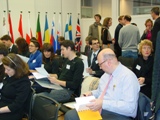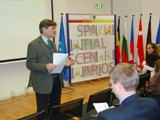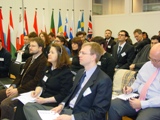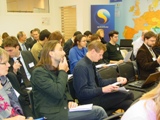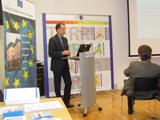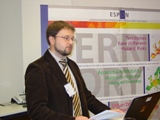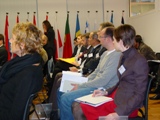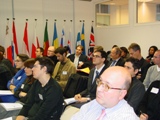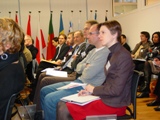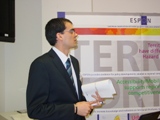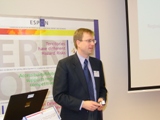Workshop on Approaching New Functional Areas
The European Commission identifies territorial cohesion in its respective Green Paper on Territorial Cohesion as a place-based policy. It expresses the need to coordinate and integrate a set of policy actions at the level of a given territory. This given territory is to prove some internal coherence or functionality that forms a logic base for policymakers and stakeholders to exploit common territorial capital and to tackle common challenges. New types of functionally defined areas might be demanded by the appearance of new geographies as being recognised in the Green Paper.
Examples of new functionalities which are appearing within the European geography and might demand specific attention include transnational macroregions, cross-border polycentric metropolitan regions and urban-rural territories. New geographies relate as well to Europe’s functional position in the world. Being highly integrated in the global context, the functional relations between Europe and the world are of increasing importance. This global interphase is today mainly concentrated in metropolises / capital cities and differentiated / specialised within the European territory.
The ESPON 2013 Programme took up the issue of new functional areas and invited for a one day Open Workshop on Approaching New Functional Areas, which contributed to the European Year 2009 of Creativity & Innovation.
The workshop took place at la Maison de l’Europe (the EC Representation to Luxembourg) on 5 November 2009 in Luxembourg.
This Open ESPON Workshop explored how different territorial research approaches to new functional areas can be used to support policymakers in setting policy actions for territories with sufficient internal coherence and functionality. It took stock of different scientific paths and discussed in particular 1) functional-morphological, 2) economic as well as 3) institutional approaches to identify and analyse functional areas.
The workshop aimed at having a discussion amongst policymakers, practitioners and scientists working in the field of territorial cohesion. Around 40 experts from all over Europe attended the workshop. You may find below the Workshop Programme, the Workshop Paper as well as the presentations given. A Workshop Report will be made available in the course of November 2009.
Examples of new functionalities which are appearing within the European geography and might demand specific attention include transnational macroregions, cross-border polycentric metropolitan regions and urban-rural territories. New geographies relate as well to Europe’s functional position in the world. Being highly integrated in the global context, the functional relations between Europe and the world are of increasing importance. This global interphase is today mainly concentrated in metropolises / capital cities and differentiated / specialised within the European territory.
The ESPON 2013 Programme took up the issue of new functional areas and invited for a one day Open Workshop on Approaching New Functional Areas, which contributed to the European Year 2009 of Creativity & Innovation.
The workshop took place at la Maison de l’Europe (the EC Representation to Luxembourg) on 5 November 2009 in Luxembourg.
This Open ESPON Workshop explored how different territorial research approaches to new functional areas can be used to support policymakers in setting policy actions for territories with sufficient internal coherence and functionality. It took stock of different scientific paths and discussed in particular 1) functional-morphological, 2) economic as well as 3) institutional approaches to identify and analyse functional areas.
The workshop aimed at having a discussion amongst policymakers, practitioners and scientists working in the field of territorial cohesion. Around 40 experts from all over Europe attended the workshop. You may find below the Workshop Programme, the Workshop Paper as well as the presentations given. A Workshop Report will be made available in the course of November 2009.
This event was organised within the framework of the ESPON 2013 Capitalisation Strategy
(Actions related to European Seminars and Workshops).
|
|
